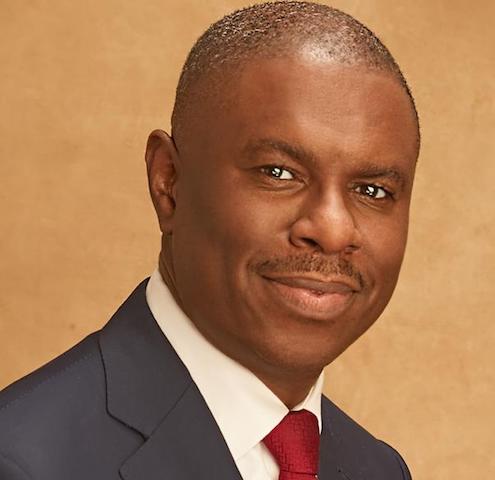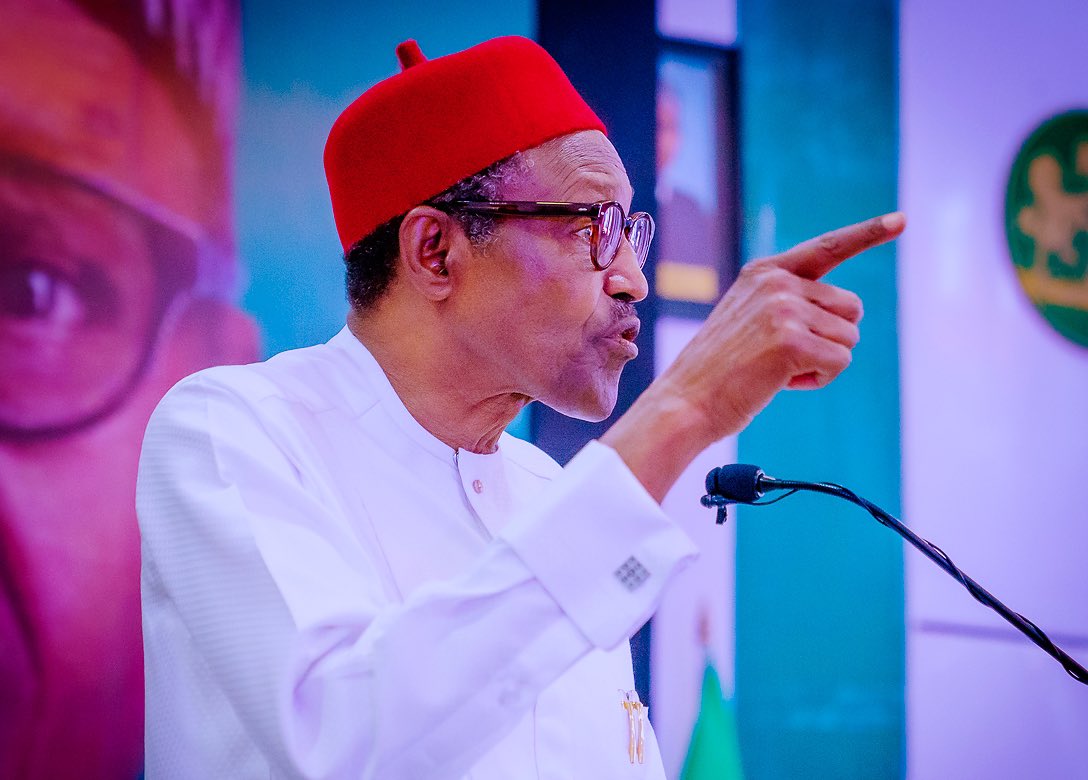Nigeria decides 2023: campaign promises and the question of trust, by Dakuku Peterside
Most societies do not trust their politicians, so this is not an anomaly unique to Nigeria. Whether it is an advanced democracy or a developing country makes no difference. For example, 63% of Britons believed their politicians were mainly interested in themselves, according to think tank IPPR's 2021 poll. Additionally, in another survey, 60% of Australians rate politicians very low on questions of honesty and integrity. Similarly, in the United States, a 2021 Gallup poll showed that 60% of Americans do not trust their politicians. A 2013 study by the World Economic Forum (WEF) pointed out that people's trust in Indian politicians reached an all-time high that year.
However, the case of Nigerians and trust in their politicians seems to be on the decline with every election cycle since 1999. An extreme deficit of trust hangs over Nigerian politicians, and the public has little faith in campaign promises or even commitment made by politicians. . Much of the trust deficit is related to the fact that there is no political accountability mechanism in the country. Even when it is in place, politicians and even the institutions that are supposed to enforce it usually undermine it.
The 2023 elections present a unique situation for the average Nigerian voter when faced with the problem of lack of confidence within the political class. Nigerians have lost patience in trusting their politicians and those who hold public office on their behalf. There are five important reasons why the average Nigerian citizen and voter cannot trust politicians.
First, politicians have failed to keep their many promises over time. A critical look at campaign promises since the 1979 elections reveals that the themes and promises are the same: to ensure food self-sufficiency, constant electricity, running water, road construction, coupled with the provision of quality education and health care. . From the post-1999 political period until today, we can add to this list the issues of security, job creation through industrialization, the fight against corruption, the recovery of the economy, and the cocktail of promises would have been complete. I bet you it will be the same stakes and promises in the 2023 election.
Politicians have never properly delivered on any of these promises, none of which have been genuinely heeded and eliminated from the list of development challenges. The tendency is as if, immediately after the elections, politicians forget or even renege on their promises. Many of our basic infrastructures are non-existent or in poor condition. Youth unemployment is rife despite many promises of job creation and overhauling social services, which are either non-functional or sub-optimal. Restructuring issues have featured in most election campaigns since the 1999 general election, but despite all the promises of successive candidates, we are still at the same point of talking about the same issues since then.
Second, the inconsistency of politicians is legendary and often borders on creative lies and propaganda. Nigerian politicians change parties like asoebi bridal wear in traditional wedding ceremonies. The policy of the supremacy of self-interest has killed any serious ideological foundation of any of the political parties.
Politicians have turned parties into vehicles for power struggles without any enduring commitment to ideals, philosophies and ideologies. On political issues, you almost never know where politicians and office holders stand. Furthermore, when issues of national importance arise, politicians move from one opinion or position to another according to their personal interests. For example, many northern politicians, especially PDP presidential candidate Alhaji Atiku Abubakar, supported the zoning issue in 2011 but opposed it in the 2019 and 2022 primaries because it favors them and the North.
Third, many campaign promises do not have specific details on how to fulfill them. Politicians create sound bites and colorful proclamations about massive projects they promise to build to improve the lives and material conditions of citizens. However, the policies provide no information on the feasibility or viability of these projects. They do not provide details on how and where they will get the funds for the project, who will oversee the project, the cost-benefit analysis and who will benefit. What are the opportunity costs of the project, and how does the project link to other projects to provide an infrastructure system that supports economic sustainability and growth?
Fourth, the average politician is a personality-changing chameleon during and after elections. The best time to easily access politicians is when they are soliciting votes. They demonstrate an openness that surprises their worst critics and communicate with compassion and determination during the election campaign...

Most societies do not trust their politicians, so this is not an anomaly unique to Nigeria. Whether it is an advanced democracy or a developing country makes no difference. For example, 63% of Britons believed their politicians were mainly interested in themselves, according to think tank IPPR's 2021 poll. Additionally, in another survey, 60% of Australians rate politicians very low on questions of honesty and integrity. Similarly, in the United States, a 2021 Gallup poll showed that 60% of Americans do not trust their politicians. A 2013 study by the World Economic Forum (WEF) pointed out that people's trust in Indian politicians reached an all-time high that year.
However, the case of Nigerians and trust in their politicians seems to be on the decline with every election cycle since 1999. An extreme deficit of trust hangs over Nigerian politicians, and the public has little faith in campaign promises or even commitment made by politicians. . Much of the trust deficit is related to the fact that there is no political accountability mechanism in the country. Even when it is in place, politicians and even the institutions that are supposed to enforce it usually undermine it.
The 2023 elections present a unique situation for the average Nigerian voter when faced with the problem of lack of confidence within the political class. Nigerians have lost patience in trusting their politicians and those who hold public office on their behalf. There are five important reasons why the average Nigerian citizen and voter cannot trust politicians.
First, politicians have failed to keep their many promises over time. A critical look at campaign promises since the 1979 elections reveals that the themes and promises are the same: to ensure food self-sufficiency, constant electricity, running water, road construction, coupled with the provision of quality education and health care. . From the post-1999 political period until today, we can add to this list the issues of security, job creation through industrialization, the fight against corruption, the recovery of the economy, and the cocktail of promises would have been complete. I bet you it will be the same stakes and promises in the 2023 election.
Politicians have never properly delivered on any of these promises, none of which have been genuinely heeded and eliminated from the list of development challenges. The tendency is as if, immediately after the elections, politicians forget or even renege on their promises. Many of our basic infrastructures are non-existent or in poor condition. Youth unemployment is rife despite many promises of job creation and overhauling social services, which are either non-functional or sub-optimal. Restructuring issues have featured in most election campaigns since the 1999 general election, but despite all the promises of successive candidates, we are still at the same point of talking about the same issues since then.
Second, the inconsistency of politicians is legendary and often borders on creative lies and propaganda. Nigerian politicians change parties like asoebi bridal wear in traditional wedding ceremonies. The policy of the supremacy of self-interest has killed any serious ideological foundation of any of the political parties.
Politicians have turned parties into vehicles for power struggles without any enduring commitment to ideals, philosophies and ideologies. On political issues, you almost never know where politicians and office holders stand. Furthermore, when issues of national importance arise, politicians move from one opinion or position to another according to their personal interests. For example, many northern politicians, especially PDP presidential candidate Alhaji Atiku Abubakar, supported the zoning issue in 2011 but opposed it in the 2019 and 2022 primaries because it favors them and the North.
Third, many campaign promises do not have specific details on how to fulfill them. Politicians create sound bites and colorful proclamations about massive projects they promise to build to improve the lives and material conditions of citizens. However, the policies provide no information on the feasibility or viability of these projects. They do not provide details on how and where they will get the funds for the project, who will oversee the project, the cost-benefit analysis and who will benefit. What are the opportunity costs of the project, and how does the project link to other projects to provide an infrastructure system that supports economic sustainability and growth?
Fourth, the average politician is a personality-changing chameleon during and after elections. The best time to easily access politicians is when they are soliciting votes. They demonstrate an openness that surprises their worst critics and communicate with compassion and determination during the election campaign...
What's Your Reaction?






















